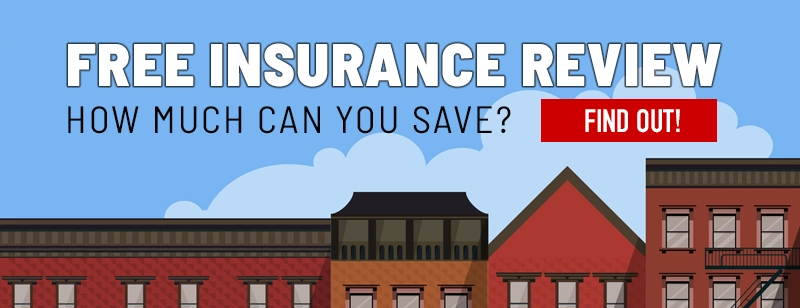How Umbrella Policies Complement Landlord Insurance

A business or commercial umbrella policy can supplement an existing landlord insurance policy, offering additional liability protection. This article looks at situations that umbrella policies can cover and offers guidance for identifying how much coverage you might need. (Spoiler alert: You’ll want to consult your financial advisor.)
What Does an Umbrella Policy Cover?
Once you’ve reached the liability coverage limits of your current landlord policy, your umbrella policy kicks in to cover the remaining payout.
Depending on the specific policy, umbrella policies can be fairly broad, even covering situations that may be excluded by the liability clause on a landlord policy:
- A tenant or guest is injured in one of the common areas (e.g., lobby, laundry room, mail room, parking lot, etc.) of your multifamily building.
- Someone sues you, and you must pay for legal defenses, even if you’re not at fault.
- A tenant or guest is injured because something in your building wasn’t maintained. For example, if a step has crumbled, a handrail has collapsed, or snow and ice aren’t removed from public walkways in front of your property by the city’s deadlines, you can be held liable for injuries.
- Someone sues you for damage caused by one of your tenants.
- Someone gets injured on your vacant property.
- A child is injured because you or your tenant owns an attractive nuisance (e.g., pool, jungle gym, toys, construction area) that isn’t secured or fenced off.
- A former tenant breaks into your current tenant’s unit because you haven’t changed the locks yet.
What Does an Umbrella Policy Not Cover?
As mentioned, umbrella policies are designed to fill in gaps in liability coverage. The following types of claims are generally excluded from an umbrella policy:
- Property damage (Your landlord’s insurance policy typically covers property damage, depending on the situation.)
- Damage that you or a tenant knowingly and intentionally caused
- Any personal injuries or expenses you’ve sustained (This might be covered on a personal umbrella policy, but it depends on your policy and the situation.)
What if I Have an LLC or Excess Liability Coverage?
Protections provided by an LLC or any excess liability coverage added to your landlord insurance policy must be exhausted before umbrella policy coverage begins. It’s possible to have an LLC, a landlord insurance policy, an excess liability coverage add-on (depending on the provider), and an umbrella policy. The right mix of protection depends on how much you need to cover.
NOTE: To know exactly how much you need your umbrella policy to cover, we recommend you consult with your financial planner. You’ll need to discuss how extensive your real estate portfolio is and what other assets you own that could be at risk in a lawsuit. We’re glad to show you umbrella policy options once you know how much you need to cover.
For a free building insurance review, please call us at 877-576-5200.

